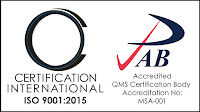The Colombo Plan Staff College for Technician Education (CPSC) is an autonomous specialized agency of the Colombo Plan. It was established on December 5, 1973 at the 23rd Consultative Committee Meeting of the Colombo Plan held in Wellington, New Zealand to assist the member countries of the Colombo Plan in developing and enhancing their technician education systems. It became operational in 1974 with the Republic of Singapore serving as the first host Government. In January 1987, CPSC moved to Manila, Philippines upon the invitation of the Philippine Government.
Member Countries
CPSC was founded by 26 countries which include Afghanistan, Australia, Bangladesh, Bhutan, Canada, Fiji Islands, India, Indonesia, Iran, Japan, Khmer Republic, Republic of Korea, Laos, Malaysia, Republic of Maldives, Myanmar (Burma), Nepal, New Zealand, Pakistan, Philippines, Singapore, Sri Lanka, Thailand, United Kingdom, United States of America and the Republic of Vietnam. They collectively agreed that a regional center for technician education and training needed to be established to assist countries in Colombo Plan region in this area. The said countries cooperated under south-south cooperation which has been the principal framework for CPSC’s programs and activities from its inception until now.
CPSC has 28 member countries classified as charter and current members. There are sixteen (16) active member countries, twelve (12) charter member countries.

Purpose & Functions
CPSC is a unique Inter-Governmental Organization (IGO), which consistently addresses issues in Technical and Vocational Education & Training in the Asia and the Pacific region.
For over four decades, CPSC continues to assert its role in advancing human resources development across the region.
The purpose of the Staff College is to improve the quality of technical education and training in the Colombo Plan region. This is done by meeting the needs for technician education of teacher educators and trainers and senior staff in the field, who can play a more active part in in-service training and staff development.
The main functions of the Staff College include:
- Provide courses of further professional education and training to persons responsible for the planning, development, administration and supervision of technician education and training and persons in key supporting roles;
- Conduct conferences on various aspects of technician education and training;
- Assist in the conduct of projects in the field of staff and curriculum development and other projects aimed at the effective utilization of resources for learning and teaching;
- Promote, coordinate and undertake research and development activities;
- Advise and assist member countries in developing their technician teacher education;
- Collect and disseminate information on technician education and training.
Corporate Strategy
The CPSC Strategic Plan 2023-2028 is a product of a multi-stage process in which consultative meetings and gatherings of TVET experts and advisors from all over Asia Pacific were organized from July to December 2022 to facilitate the discussion of ideas, concerns and strategies for CPSC’s new 5-year direction.
Shared Vision 2023-2028
A Globally-Renowned Center for the Transformation of TVET
Mission Statement
Transform TVET towards Inclusive and Sustainable Societies through Outcome-Based Programs and Services, Research & Innovation, International Cooperation, and Quality Assurance for the Member Countries
Strategic Goals
- Ensure accessible, responsive, and quality TVET human resource development programs and services.
- Promote member country engagement, international cooperation, and strategic partnerships.
- Enhance organizational efficiency and ensure sustainability of CPSC.
Mark of Quality

CPSC operates a management system which has been assessed as conforming to ISO 9001:2015 for the scope of activities: Organizing demand-driven training programs, projects, accreditation and certification, research, information and communication technology (ICT) in technical and vocational education and training (TVET), and human resource development services.








